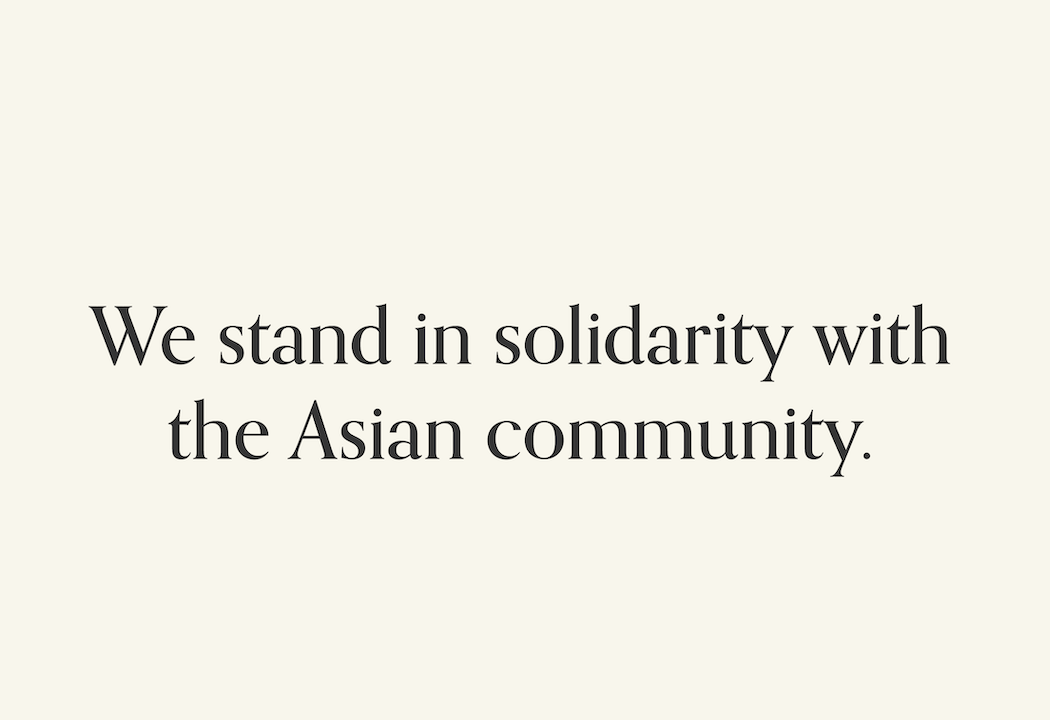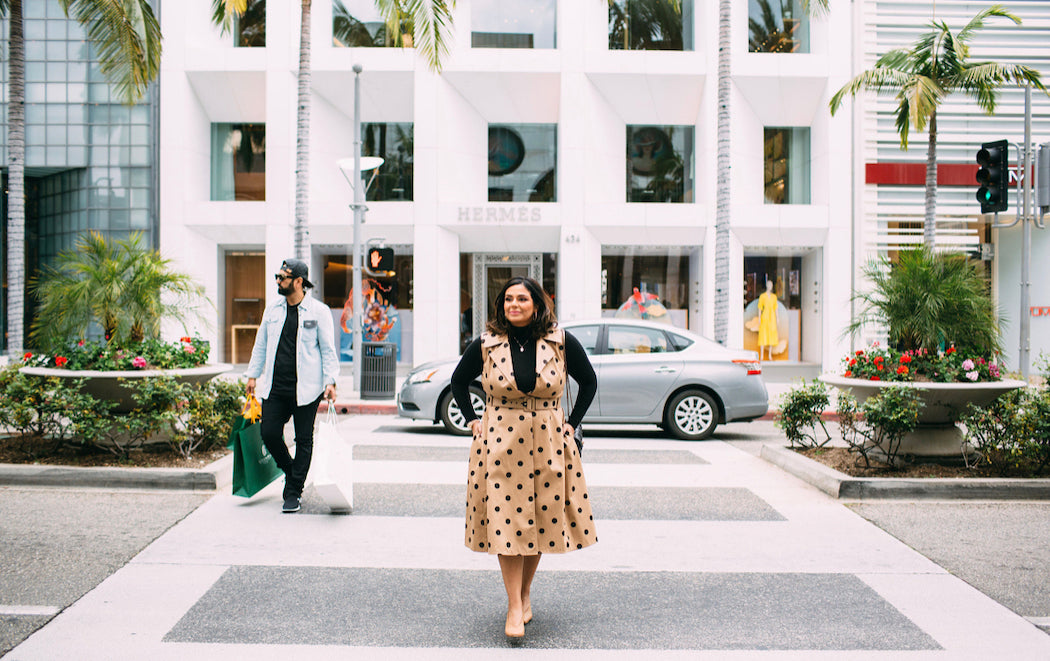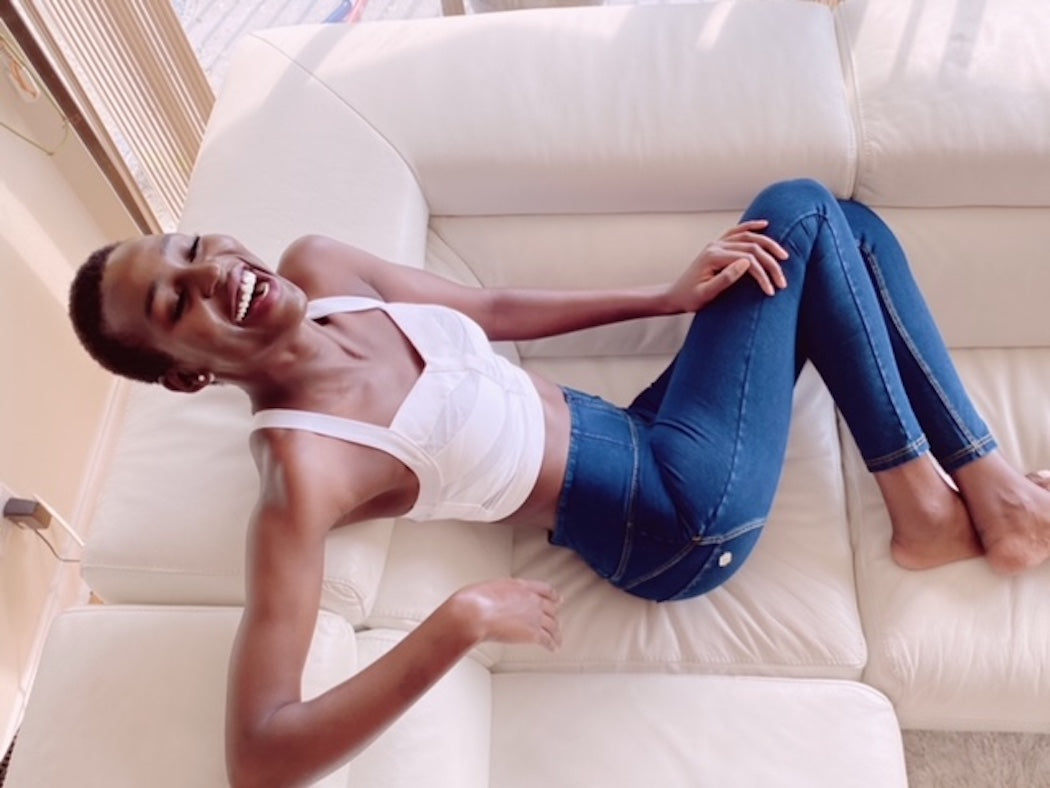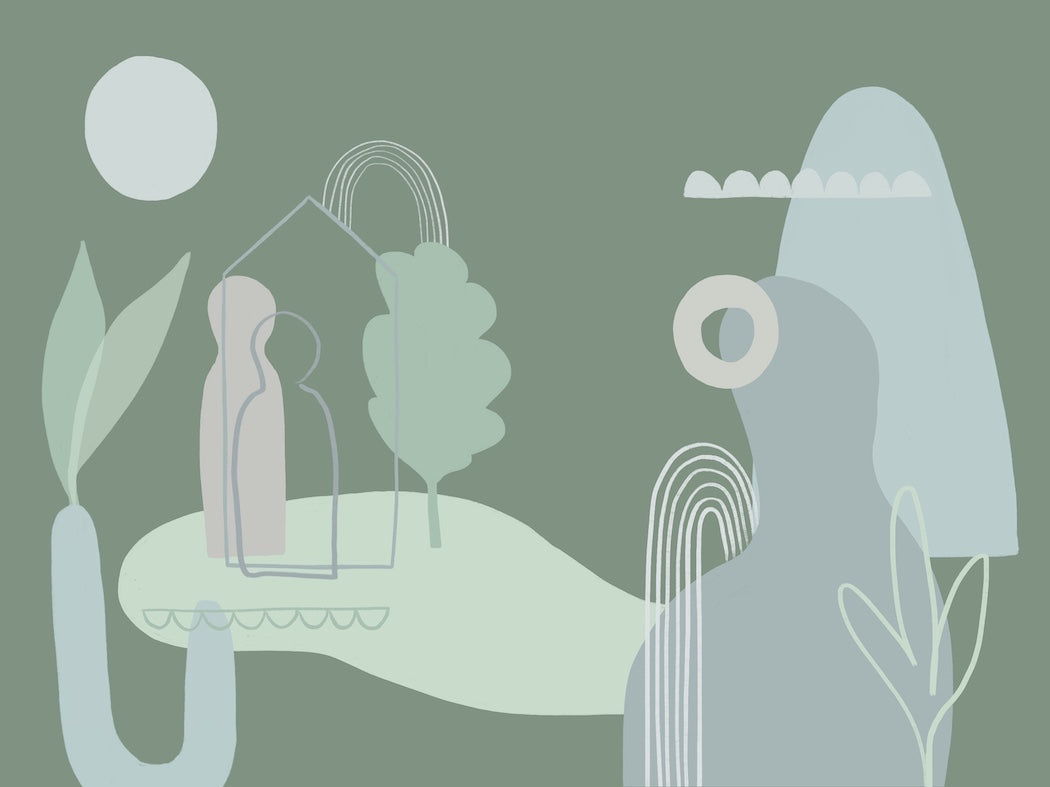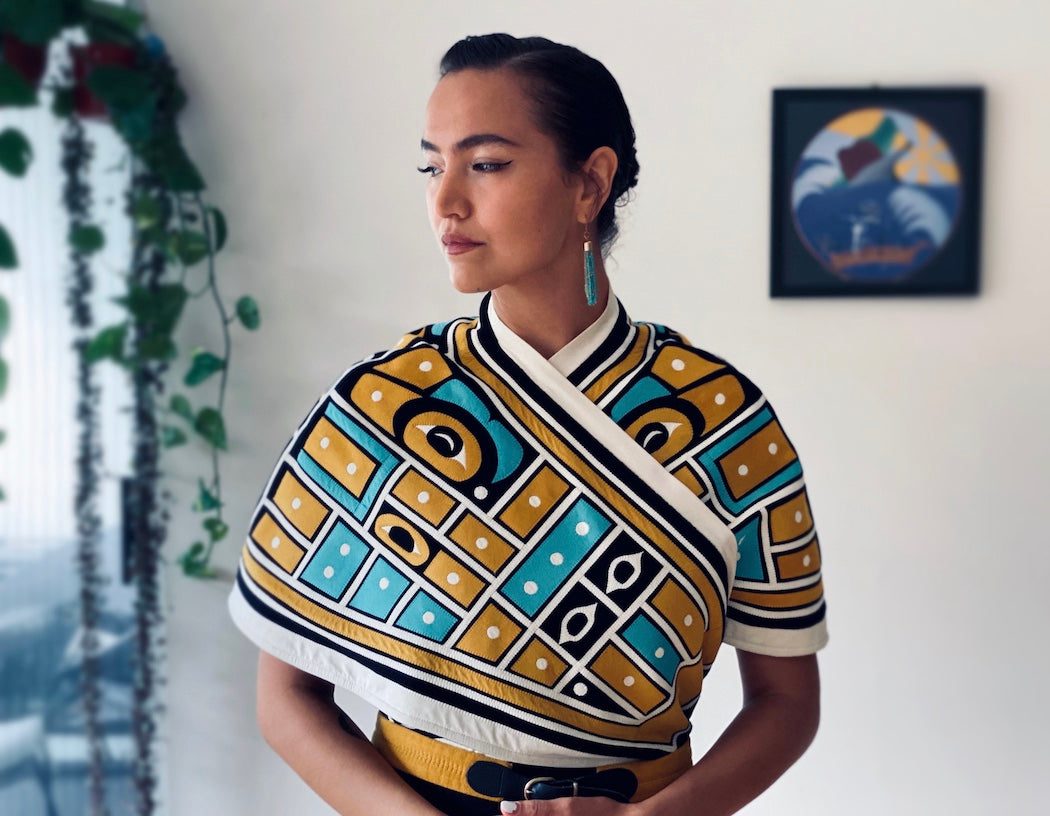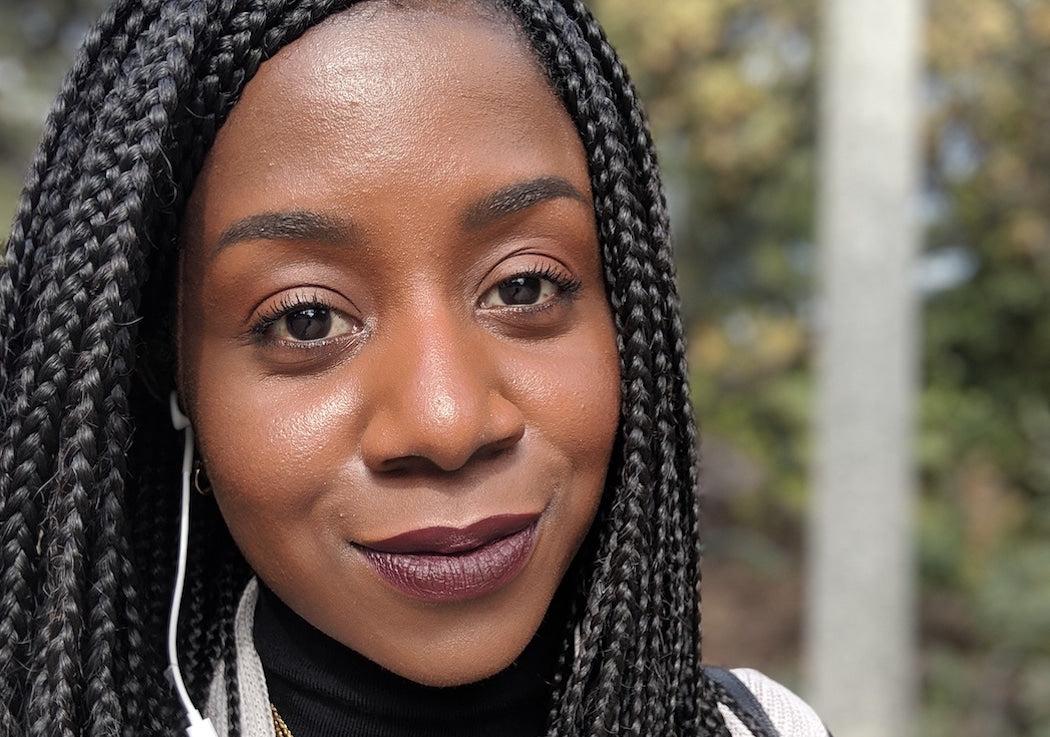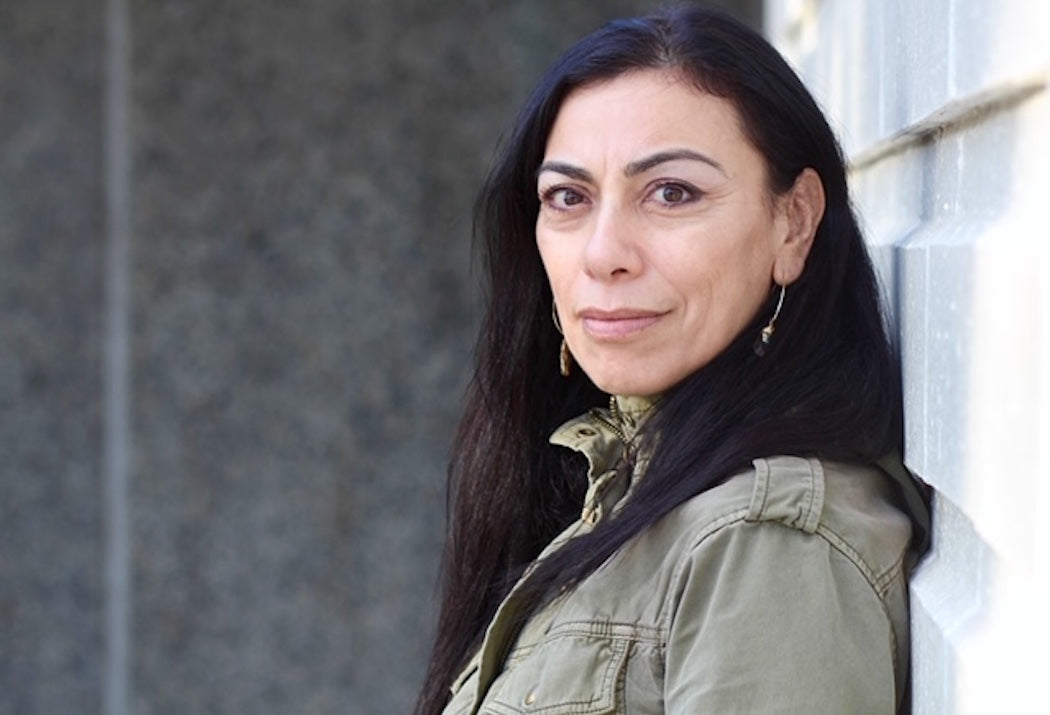Empowering women and young girls is more important than ever. And if it’s necessary here in North America, then it’s even more crucial in parts of the world where women don’t share our privileges. So today I want to turn our focus to One Girl Can: an incredible Vancouver-based organization that helps mentor and educate young girls in Kenya (vitruvi is such a fan that we created a special partnership).
The model is incredibly unique because One Girl Can supports these girls from every possible direction. It’s a holistic approach that combines building new schools and infrastructure, educating and mentoring the girls in high school, and also providing them with university scholarships. There are organizations that do one of these things singularly, but One Girl Can does all three.
I had a chance to sit down with Lotte Davis, the founder of One Girl Can (and the co-founder of haircare brand AG Hair) at her office. She is an incredible woman who knew from a young age that she wanted to make an impact on gender and equality issues, and it’s quite inspiring to be face-to-face with someone who is so passionate about what she does.
When did the idea for One Girl Can come to you?
It probably went back to my childhood, because the desire to impact gender and equality and the injustices that I witnessed growing up in Africa during the apartheid era, paired with my rebellious nature, really all sort of came together in my teens. Also growing up in the 1960s during the cultural revolution, the sexual revolution, the civil rights revolution—that really shaped who I became for the rest of my life. So I always knew that I wanted to do something about women and I knew that I wanted to do something to make amends for what I had witnessed in Africa. And I also knew that the only way I was ever going to be able to do that was to become successful. So as a teenager in the 1960s in Canada, I knew that I was going to figure out how to do that.
I was very fortunate to get married to a man who was also very entrepreneurial, so together we built AG Hair, and it was probably 15 years into the growth of AG that I realized it was actually stable and that it wasn’t going to go bankrupt overnight. We were very profitable and we were growing, and that’s when I knew—I had raised two daughters of my own and they were just finishing high school and starting university, and I had such joy raising both of my daughters and seeing them fulfill their own potential. I was really sad that it was coming to an end, so it all came together at the same time: my girls leaving home, missing the best job that I’d ever had in my life (raising them), and realizing that the time had come that I wanted to do something about Africa.
I had absolutely no idea how I was going to do this. I hadn’t been in Africa for 45 years. I just started reading a lot, and then one day I decided to get on a plane and go there. I chose Kenya, I found an NGO [non-governmental organization] there that gave me liberal access to projects. I told them I wanted to build schools for girls, and they introduced to me to some very rural schools in dire need, so I started doing this. I had no idea where it was going to go—no idea that I’d be running my own charity one day. But as soon as I started to get involved in this, I knew that I was going to need a lot more money. And then I could personally donate, so we started involving our business. That happened really organically, because our employees knew I was going to Africa and they wanted to know more, they wanted to see pictures, they hadn’t known anyone who had been to Africa—it intrigued them. Then they would tell their customers about it and there was this groundswell of interest, so we ended up taking our two best-selling products and giving all the donations to build a school in Africa.
It was probably five years into it when I realized I had to run this myself, and got a charitable tax license.
There were so many ways to involve our customers who wanted to be involved, who asked for more participation—so completely inadvertently, we had created a brand loyalty we hadn’t expected or anticipated, and One Girl Can is so intrinsically enmeshed in our organization that you could not take it out because we would lose business; people would be disappointed. We have higher employee retention because of our involvement, so it had a real spiral effect in everything we were doing. Many of our suppliers have sponsored girls on their website and wanted information, so I came to understand how important it is for a profitable business to give back. And how easy and effortless it is that you never notice you’re giving a percentage back and how much social good you do, but the side benefit of that, if it’s really authentic, is that you gain untold brand support and loyalty from your customers for doing it. So that was a very long-winded answer to question number one.
When you were starting off it was purely more focusing on building and infrastructure, then there was a shift to education and mentorship. Can you pinpoint what promoted that?
I had hired an NGO to oversee the projects that I was building, and because of that I always dealt with contractors or with boards of governors and teacher associations, heads of schools—and I never had that access to the girls. As soon as I terminated my partnership with the NGO, I got to know the girls.
Once I started talking to the girls, I realized I wanted to tell them something about me, and I started doing presentations and I showed them my family, showed them my business, and told them I came from Africa and why I did this. I started having more and more meetings with them, and I started asking them what they wanted to be—and that’s when I discovered that no one had ever asked an African girl living in extreme poverty what she wanted to be, because it was always assumed she would start having babies at 16 and carry water on her head for the rest of her life. And they couldn’t speak to me—they were talking into their chests, barely audible. They couldn’t make eye contact with me and I’m really bold, so I would say, “You want to be a doctor? You can’t talk to your chest, you have to stand up and you have to say it loud or nobody will believe you, unless you scream it.” And I started having them stand up and speak really loudly.
Our mandate is that we have not done our job unless a girl is earning a salary.
Being with them made me realize how much information I had collected over a lifetime that I completely took for granted. I started thinking about what I had in common with an African girl living in extreme poverty—how I could have the audacity to speak to her and tell her that she could do everything that I did? I couldn’t find that link. I had so much more infrastructure in my life to get me there, and then I realized that the one thing I had in common with her was that we could both create a vision for the life we wanted to live, set goals, and execute on them. Everybody can set a goal. If it was just, “I wanna get a C+ in my physics exam”—how do you do you the steps? How do you get there? “I want to become a civil engineer.” What do you have to do today to get there? What do you have to do tomorrow? And so that became the basis for all that mentoring. Every program we go through has smart goals as its foundation, and envisioning and career planning and confidence building. And so that’s really how the mentorship program grew. And it continues to be the backbone of everything that we do.
Tell me about the conference that you hold yearly.
It’s called Becoming the Best Version of Me.
Keynote speakers, maybe 12 different workshops, and all of them are aimed at helping them figure out how to get a job, because it isn’t enough to provide a scholarship and walk away. Unemployment is rated at almost 45% in Kenya and in most African countries, so making sure that their resume hits the top of the pile and that when they get an opportunity to get an interview, they’re ready—they’re confident, they know how to walk in and shake somebody’s hand. They know how to get somebody’s attention, they’ve had experience in the workplace—it’s all about building that resume, building their confidence, and making sure they get a job.
Our mandate is that we have not done our job unless a girl is earning a salary. I think there are a lot of organizations that build schools in Africa and build classrooms. There are many more that offer scholarships to girls in high school and I think there are more and more that are offering some sort of mentoring, but nobody puts the whole thing together and stays with the girl from the time she starts high school until she earns a living. So that is what the university classes are about, and they come back every year and add on more and more. And we also pay girls to take on an internship. If they use the skills we taught them on how to write a resume, a cover letter, and they go out and find an internship for free, we’ll pay for her living expenses for that period of time. We’re that committed to it. And when we’re there, we’re in touch with them every single year. I can see the growth. We have a support system for them all year round—we have people in Kenya they can talk to anytime their computer breaks down or they can’t find something or they’re worried or something happened to the family. There’s always someone there to support them.
What was it like having all the girls in one place? Were they really excited to meet each other? What’s the atmosphere like during the conference?
Yeah, great networking. We mix them up so they have their first day with their high school students and then we pair them with a university, so they may not have met girls in the same university system. By the Saturday night [at the most recent conference], we had a gala dinner where we did an awards ceremony, and then we brought in an African DJ who was playing some really wonderful tunes. And then they all got up and danced and so the energy just got better. By Sunday, when we were doing all of our closing speeches, you could hear a pin drop in the room. They were just laser-focused on everything you said.
The girls who were there last year now have new friends, and we’ve just started an online community; someone donated and built the entire platform out for us so all these girls can network together. They can write down all their preferences, find out who’s like them, keep in touch. We put photos of the events—it’s a really robust program. Networking is one of the courses that we teach, and it’s just as important as managing your budget. Everybody you meet in your life can be of some benefit to you and you may be of some benefit, so we really teach that.
I will say, on the last day in the last speech, I could barely even speak because the past couple of sentences were so emotionally charged that I had trouble articulating the last few words. And then there was just a massive group hug with 134 people, and it was lovely.
This interview has been edited and condensed.


